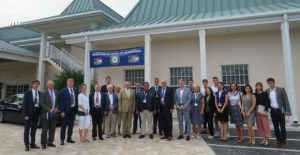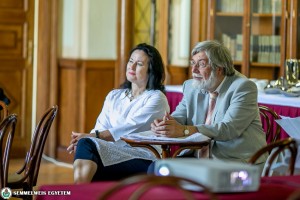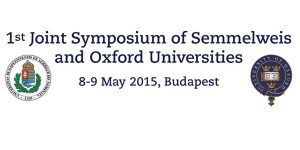The Budapest Nephrology School’s (BNS) continuing education programme was organised for the 21st time this year. Around 100 participants came from 31 countries to the almost one week long programme; there were over 30 invited speakers.
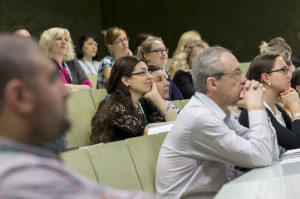 Dr. László Rosivall, founder of BNS and former director of Semmelweis University’s Department of Pathophysiology, emphasised at the opening ceremony that today BNS is irrevocably the part of European and Hungarian history of renal physiology. He reminded the audience that Hungarian nephrology was traditionally strong which is reflected by, for example, Sándor Korányi’s discoveries a century ago. However, the development halted in mid-1980. The launch of the BNS in the 90’s – possessing EU accreditation as well – was an important milestone. “We can say that every prominent nephrologist of the world has already appeared on the Budapest Nephrology School’s programme” – he emphasised.
Dr. László Rosivall, founder of BNS and former director of Semmelweis University’s Department of Pathophysiology, emphasised at the opening ceremony that today BNS is irrevocably the part of European and Hungarian history of renal physiology. He reminded the audience that Hungarian nephrology was traditionally strong which is reflected by, for example, Sándor Korányi’s discoveries a century ago. However, the development halted in mid-1980. The launch of the BNS in the 90’s – possessing EU accreditation as well – was an important milestone. “We can say that every prominent nephrologist of the world has already appeared on the Budapest Nephrology School’s programme” – he emphasised.
Dr. Eberhardt Ritz, former president of the International Society of Nephrology underlined – among others – the importance of the participation of young nephrologists.
Dr. Andrzej Wiecek, president of the European Renal Association and the European Dialysis and Transplant Association (ERA-EDTA) highlighted the international aspects of the programme and reminded the audience that the ERA-EDTA has been cooperating with the Budapest Nephrology School for a long time.
Dr. Zoltán Máthé, the new director of Semmelweis University’s Department of Transplantation and Surgery which hosted the BNS, also welcomed the participants.
The Hungarian Kidney Foundation, founded by Dr. László Rosivall, supported the participation of 21 PhD students from Semmelweis University with scholarships. The President of the six day long English language Budapest Nephrology School mentioned that – as the novelties of this year’s programme – the most interesting cases of the world-renowned speakers will be completed by the similar accounts of students. The first kidney Rubik’s cube competition was also organised and the first ‘kidney-wine’ was chosen as well.
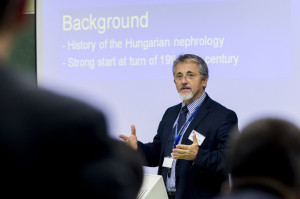 Dr. László Rosivall emphasised that the school is a great opportunity for domestic research groups and the leaders of nephrology to conduct negotiations and form new partnerships with the participating internationally renowned experts. This year Professor Rosivall had a meeting with Dr. Christopher Chan, representative of the University of Toronto which is considered as a stronghold for haemodialysis. He also conducted important discussions with the vice-rector of the Japan based Tohoku University.
Dr. László Rosivall emphasised that the school is a great opportunity for domestic research groups and the leaders of nephrology to conduct negotiations and form new partnerships with the participating internationally renowned experts. This year Professor Rosivall had a meeting with Dr. Christopher Chan, representative of the University of Toronto which is considered as a stronghold for haemodialysis. He also conducted important discussions with the vice-rector of the Japan based Tohoku University.
The speakers of BNS presented the newest scientific and clinical results, procedures and novelties; the slides of the presenters are available at the website of the Hungarian Kidney Foundation. Dr. László Rosivall also told us about the success of the presentation on the practices of the complex Hungarian patient care spanning from prevention to rehabilitation, from the education of the patient and family to psychoneurology. For the first time this year, young nephrologists had the opportunity to take part in the continuing education within the framework of the BNS.
Pálma Dobozi
Translation: Bonifác Makkai
Photo: Zsolt Szigetváry
